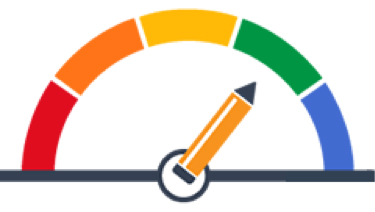Statutory changes largely call for several user- and parent-friendly changes to be incorporated into the revised LCAP template that was presented at the meeting. To better track spending, the law now requires that the template consolidate expenditures in summary tables to make it easier for stakeholders to see the full picture. According to the California Department of Education staff analysis, implementing this change could substantially reduce the length of most LCAPs, a transparency issued raised by many organizations and individuals in recent years.
Further, a summary table will clearly specify whether actions to increase or improve educational services are being provided throughout the entire local educational agency, targeted to specific high-need student groups or provided at individual school sites. The change is meant to “allow LEAs and stakeholders to quickly understand how increased or improved services are being provided and have the necessary conversations about whether the proposed approach is aligned with local priorities.”
State Board Vice President Ilene Strauss acknowledged the importance of drilling down to the most important facets in an LCAP, eliminating duplicate work and prioritizing current top-line issues for districts. “These LCAPs have become just huge documents, and it’s hard to explain as well,” she said.
“This should be your strategic plan; this should be what you are focusing on,” board member Sue Burr said in agreeing about the importance of LCAPs driving a district’s mission rather than being a compliance document.
While most speakers and board members agreed with Strauss and Burr in applauding several of the proposed changes, strong concerns were raised about several issues regarding transparency and stakeholder engagement. A long line of speakers said that there is still not enough of a connection between people’s input and how it is actually displayed in the LCAP. Speakers also complained of inconsistent stakeholder engagement at the district level, particularly with English learner families and communities.

Burr said she was disheartened to hear that districts are still struggling with stakeholder engagement and wants to make it a point of emphasis moving forward in LCAP development and implementation. “I worry a little bit that it’s being reduced to doing a bit of a checkbox,” she said.
With feedback received by CDE staff, the State Board will take up the adoption of the revised LCAP template at its November meeting.
As the new Dashboard release also approaches this fall, the board approved several changes to the state’s accountability system reporting platform. In July, the board approved a combined four- and five-year graduation rate.
That decision prompted a discussion at the September meeting about the unintended consequences of using a four- and five-year graduation rate. Specifically, a concern was raised about whether the new standard would lift graduation rates at some schools just enough to push them above the threshold that determines eligibility for comprehensive support — even though those schools would still need additional support.
Nearly 6,000 students from the previous school year finished courses and earned a diploma statewide in 2018. Including fifth-year graduates in the 2018 data would have improved graduation rate status levels for 197 traditional public schools statewide, CDE staff reported in July. That number includes 27 schools whose rates would lift them over the existing 67 percent threshold (the red zones on the Dashboard) that qualifies schools for comprehensive support and improvement.
To help offset some of the concern, the State Board approved the CDE’s recommendation’s that the low graduation threshold for comprehensive support be raised to “below 68 percent.”
The State Board also adopted using the “top of the scale range” methodology for incorporating California Alternative Assessment results into the Dashboard. Beginning with the 2019 Dashboard, the CAA results will be included in the calculations and performance colors for the Academic Indicator. To translate and equate different results from different assessments into one indicator on the Dashboard, a student’s CAA score will be substituted with the top score point of the same Smarter Balanced Assessment Consortium achievement level.
About 1 percent of California students, those with the most significant cognitive disabilities, take the alternate assessment instead of the traditional Smarter Balanced tests in mathematics and English language arts. “They are, of course, our students, and we need to make sure they are included in our accountability system,” said Cindy Kazanis, director of the CDE’s Analysis, Measurement and Accountability Reporting Division.
- For the second consecutive meeting, the board tabled the adoption of the CDE staff-recommended criteria for students to earn the upcoming State Seal of Civic Engagement. In addition to debating requirement language and whether the criteria was too limiting in terms of which students may pursue and earn the seal — as they did at their July meeting — board members also continued discussions about whether the new program should be included in the College/Career Indicator for LEAs on the Dashboard.
- Board members unanimously approved the revised timeline of key events for the development and implementation of the Mathematics Framework for California Public Schools: Kindergarten Through Grade Twelve, 2021 Revision. The schedule now calls for final State Board action on the framework in May or July 2021.
- New student board member Brenna Pangelinan was sworn in by Board President Darling-Hammond. Pangelinan is a senior at Eastlake High School in Chula Vista and was the student board member for the Sweetwater Union High School District from 2018–19. Among other initiatives, she started a mental health task force at Eastlake High.